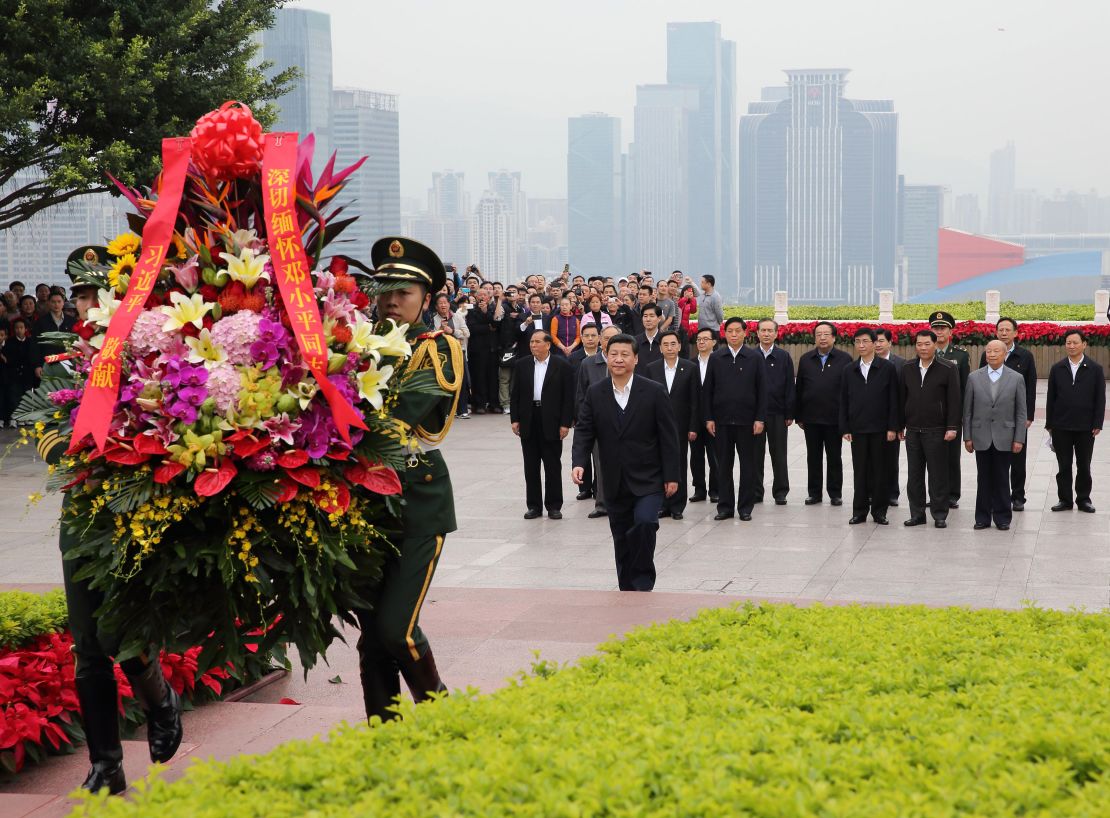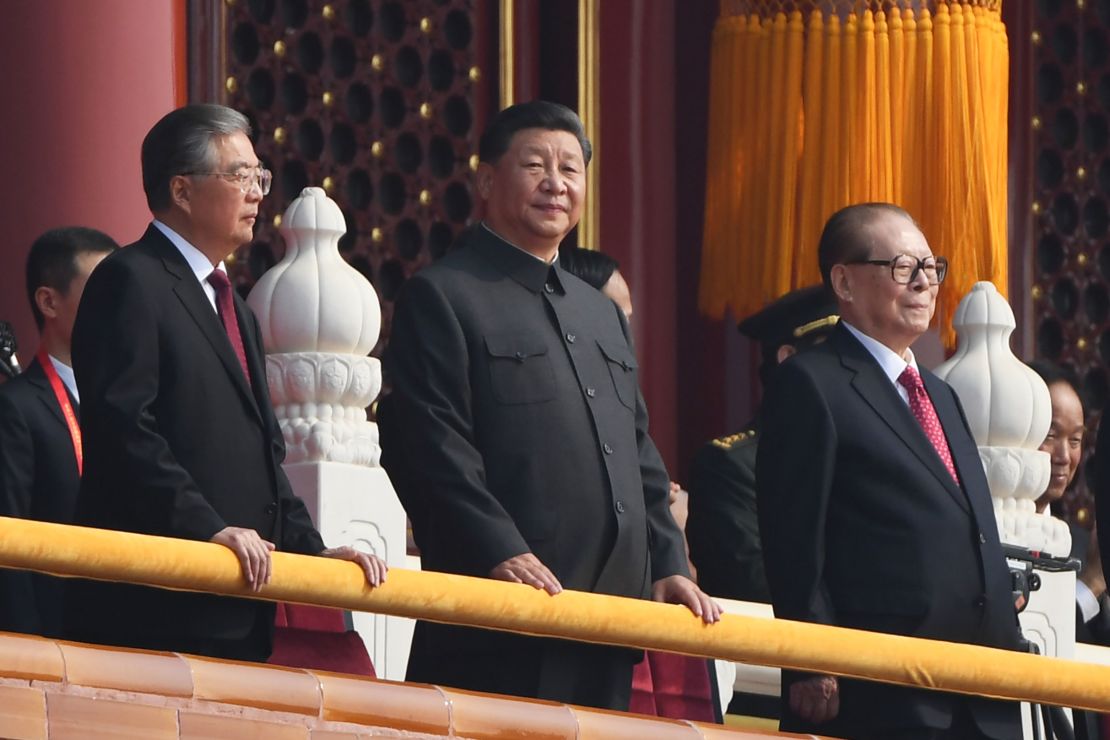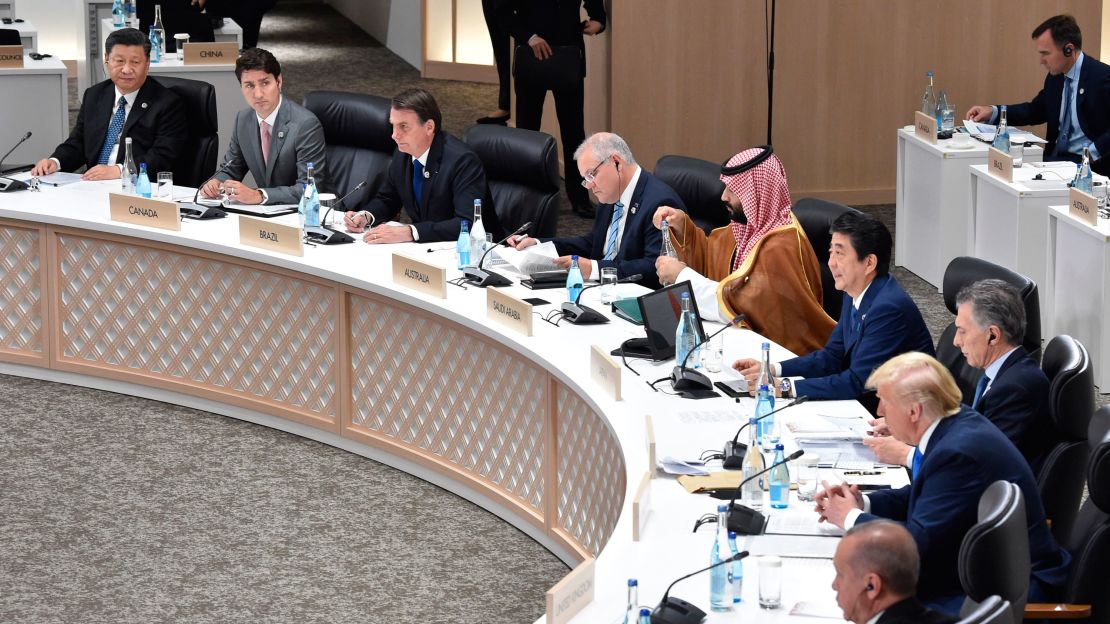In January 2013, months after taking the helm of China’s ruling party, Xi Jinping gathered the country’s top politicians and asked them why the Communist Party of the Soviet Union had collapsed.
Xi, of course, already had the answer.
“It completely denied Soviet history, the history of the Soviet Communist Party, denied Lenin, denied Stalin,” he said. “Party organizations at all levels had almost no effect, and the army was not there.”
Nine years later, none of the above apply to the Chinese Communist Party (CCP).
As general secretary, Xi has returned the CCP to the center of Chinese life. Citizens celebrate the party’s much-edited history en masse at packed Red tourism sites, its founder Mao Zedong enjoys a new reverence, and once-dormant grassroots party cells have been revitalized. Since 2015, Xi has embarked on a widespread program of military reforms and modernization.
But as Xi moved to consolidated the party’s power, he took great lengths to guarantee his own.
He has axed the two-term limit on the Chinese presidency, introduced in 1982 to prevent the rise of a dictatorship, accumulated more titles than any CCP leader in recent decades, and created his own eponymous ideology, instilled in the party constitution.
Now experts in elite Chinese politics are warning that in trying to revitalize the CCP, Xi conflated himself with the party so totally he created another threat to its existence: himself.
Cai Xia, a former professor at the top training school for CCP officials, who now lives abroad and is a staunch party critic, said by concentrating power Xi had “killed the party as an organization.” Its 95 million members, she said, are “slaves of his will.”

Party structures
When Xi laid a wreath before a bronze statue of former paramount leader Deng Xiaoping, in Shenzhen, weeks after assuming office in November 2012, to many the message was obvious.
The southern manufacturing powerhouse was where Deng had famously pioneered China’s era of economic reform up in the late 1970s. Xi, pundits predicted, was offering a sign of things to come.
After all, his late father, Xi Zhongxun, had been a revolutionary veteran and liberal-minded leader. After being persecuted and jailed during the Cultural Revolution, Xi Zhongxun was handpicked by Deng to govern Guangdong province and oversee the creation of Shenzhen as a special economic zone. Many observers expected Xi to follow in his father’s footsteps.
They were all wrong. It soon turned out Xi had a very different kind of reform in mind – one that would put the party and country on a significantly different path from the one set out on by Deng.
When Xi tookoffice, outwardly China seemed stronger than it had been for decades. It had joined the World Trade Organization, held the 2008 Beijing Olympics and overtaken Japan as the world’s second-largest economy.
From the inside, Xi saw a party beset by weak leadership, intense infighting, rampant corruption, lax discipline and faltering faith. “Xi came to power in the face of fragmentation of power within the party,” said Cai, a former professor at the Central Party School in Beijing.
Xi’s predecessor, Hu Jintao, was widely seen as a weak leader.That, combined with the collective leadership style installed after Mao, had allowed the nine members of the Politburo Standing Committee – the party’s innermost circle – to each cultivate their own turf of unrivaled power. The result was difficult decision-making processes and serious infighting, with factions vying for their own interests, Cai said.
Xi’s solution was simple – and radical. He opted for a return to one-man rule. “He used the wrong way to solve the original problem, and made things worse,” Cai said.
Soon after he came into office, Xi unleashed a sweeping anti-corruption campaign, which not only targeted corrupt officials, but also his political enemies. He oversaw the spectacular downfall of powerful figures such as Zhou Yongkang, a former Politiburo Standing Committee member and security czar who was jailed for life, and Xu Caihou, a top army general who died of cancer after being expelled from the party. In less than nine years, 392 senior officials and millions of party cadres have been investigated. Those left knew total loyalty was required for survival.
To further concentrate power into his own hands, Xi set up more than a dozen “central leading groups” to oversee important policy areas, including military reform, cybersecurity, finance and foreign policy. A relic from the Mao era, these informal bodies are secretive, and almost never publicize full lists of their members. From what’s been revealed in state media reports, Xi personally heads at least seven of them, and many of his loyalists hold important positions.
These groups not only made policy decisions, but also coordinated their implementation. “In reality, these leading groups have replaced the normal mechanisms through which the party and the government operate,” Cai said.
In 2015, he silenced internal dissent. A revised version of the party’s disciplinary regulations banned “groundless criticism of the party center’s decisions and policies.” A year later, Xi was anointed the title of “core” leader, putting him on par with past strongmen like Mao and Deng. “The party’s collective leadership has become a concept in name only, and Xi has become the personification of the party center,” Cai said.
Aleksandra Kubat, an elite China politics expert at the Lau China Institute at King’s College London, said dismantling institutional processes and adopting a “personalistic leadership style” had created “a lot of resentment” in the party towards Xi. In the long term, that “may prove detrimental for its stability,” she said.
Concentrating so much power around Xi comes with another problem – it leaves little space in which to groom a successor.

‘Succession crisis’
Xi’s ascension to the top of the CCP wasn’t a surprise. All the signs had been there for years.
He joined the Standing Committee in 2007 as the son of a former Communist Party leader, with governing experience in a major province. Most importantly, he was young enough to stay in power for two terms without turning 68, the loosely-enforced age of retirement for the party’s top leaders.
Now, with one year to go before Xi would normally be expected to hand off power in 2022, there is no one on his Standing Committee similarly qualified – all members are either too old or underprepared.
It is seen as the clearest sign yet that Xi, now age 68, intends to stay for three terms in office – at least. Nis Grunberg, senior analyst at the Mercator Institute for China Studies in Berlin, said it was possible there would be hints at a successor to Xi at the 20th Party Congress in 2022, but nothing could be taken for granted.
“We don’t know how power structures and alliances will develop over the next five years … But I think it’s fair to say that the succession problem is kind of building in pressure the longer he stays,” said Grunberg.
Xi hasn’t just failed to appoint a successor. Experts said Xi has almost completely dismantled the system of succession put in place after Mao’s death to ensure the party’s longevity.
In 2018, the CCP removed all term limits on the country’s presidency, allowing Xi to rule for life if he wanted to. The CCP said the move was necessary to bring the three most-powerful positions in China into alignment – CCP general secretary and the chair of the Central Military Commission, also titles held by Xi, are not subject to term limits.
In a report for the Lowy Institute in April, China politics experts Richard McGregor and Jude Blanchette said Xi had built his own power “at the expense of the most important political reform of the last four decades: the regular and peaceful transfer of power.”
“In doing so, he has pushed China towards a potential destabilizing succession crisis,” the report said.
Two high-ranking politicians who had been once touted by multiple experts as potential successors to Xi have been quickly sidelined. Sun Zhengcai, former party secretary of Chongqing, was in 2018 convicted of bribery and imprisoned for life. Vice Premier Hu Chunhua, was not promoted into the Standing Committee of the Politburo in 2017, stalling his rise.
Some of the most high-profile leaders Xi has put in major positions of power are too old to succeed him, including Vice Premier Liu He, 69, and Vice President Wang Qishan, 73.
Carl Minzner, a professor in law at Fordham Law School in the United States said if the criteria for promotion shifted from a focus on competence to an emphasis on personal loyalty to Xi, it could lead to a generation of weak, unprepared leaders.
“In the ’80s or the ‘90s there was a degree of ‘Show me what you can do,’” he said. “I worry that what’s happening now is that the game starts to be ‘Show me how loyal you are to me personally.’”

Internationally isolated
Xi’s bullish policies aren’t just weakening the party internally – they are compromising its standing internationally.
Recent surveys from around the world have shown China’s reputation is at its lowest point in decades.
A Pew survey published in October 2020 found negative attitudes towards China have soared over the past few years in multiple European, Asian and North American countries, partly due to its handling of the Covid-19 pandemic.
At the same time, Xi has called for China to retake its place asa major global power alongside the United Kingdom, the United States and Russia.
A new generation of diplomats, nicknamed “wolf warriors” after a patriotic Chinese film series of the same name, are driving this foreign policy, fiercely responding to any perceived slight against the party and its leadership.
Xi himself has embraced that style. In his speech marking the 100th anniversary of the CCP this month, he warned any foreign countries who tried to bully China “will find their heads bashed bloody against a great wall of steel.”
Mercator Institute’s Grunberg said China had a view that the US and its global influence were in decline and this was Beijing’s chance to assert itself more forcefully. “But, of course, the way that China tries to address this … that’s very much shaped by Xi Jinping and that’s done in a way that received not well (internationally),” he said.
At the G7 meeting in June, the world’s largest advanced economies issued their strongest denunciation of China in decades. A major investment deal between the European Union and China is at risk after sanctions imposed by Beijing on EU officials. Australia is calling for investigations into Beijing’s handling of the Covid-19 pandemic, and India is banning Chinese apps over security concerns and sending troops to its shared border with China.
During four years of isolationist policies under former US President Donald Trump, the Chinese government failed to bring a single American ally closer into its orbit – a sign of how poorly Beijing’s Wolf Warrior diplomacy has been received internationally.
In a recent essay in Foreign Affairs, Yan Xuetong, dean of the Institute of International Relations at Tsinghua University, said Beijing deliberately rejected new military alliances to avoid being drawn accidentally into armed conflicts.
It is unclear who would be interested in signing such a treaty with Beijing in the current climate.

The future of the Party
The longer Xi stays in power, the harder it will be for him to stand down.
Richard McGregor, senior fellow at the Lowy Institute, wrote in his book “Xi Jinping: The Backlash” that if Xi stepped aside the enemies the Chinese leader made in his brutal anti-corruption campaign, and his subsequent power grab, would likely be waiting to pounce.
“In a virtuosic display of circular logic, (Xi’s supporters) maintain that the appointment of a successor would therefore cause instability, rather than the other way around,” McGregor wrote.
Given that risk, Xi might choose to stay in power for the foreseeable future, or alternatively choose to hand over some of his positions to a successor but remain the puppetmaster, in a similar fashion to Deng in the 1980s and ’90s.
For now, the CCP might not be at immediate risk of collapsing or losing its grip on power, in the same way the Communist Party of the Soviet Union came crashing down in 1990. But experts said Xi’s policies threatened to leave future leaders less prepared to tackle the rising problems facing China, such as slowing economic growth, a falling birth rate and strategic competition with the US.
And there is no question that whoever takes over will have the specter of Xi looming over them, said former CCP professor Cai.
“After he amassed so much power and made so many mistakes, he’s embarking on a self-destructive path of no return,” she said.

